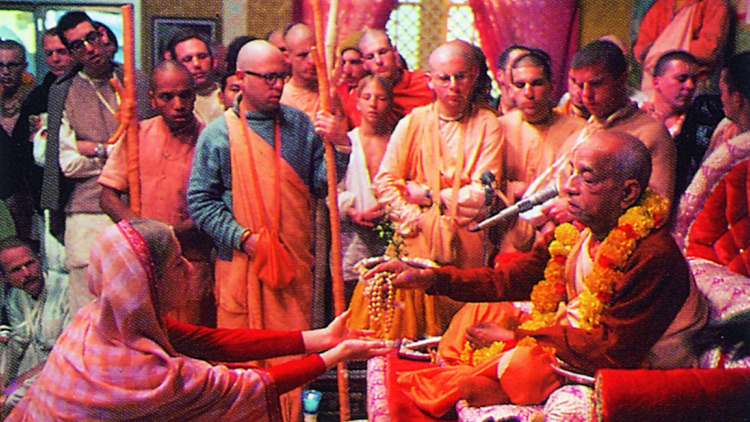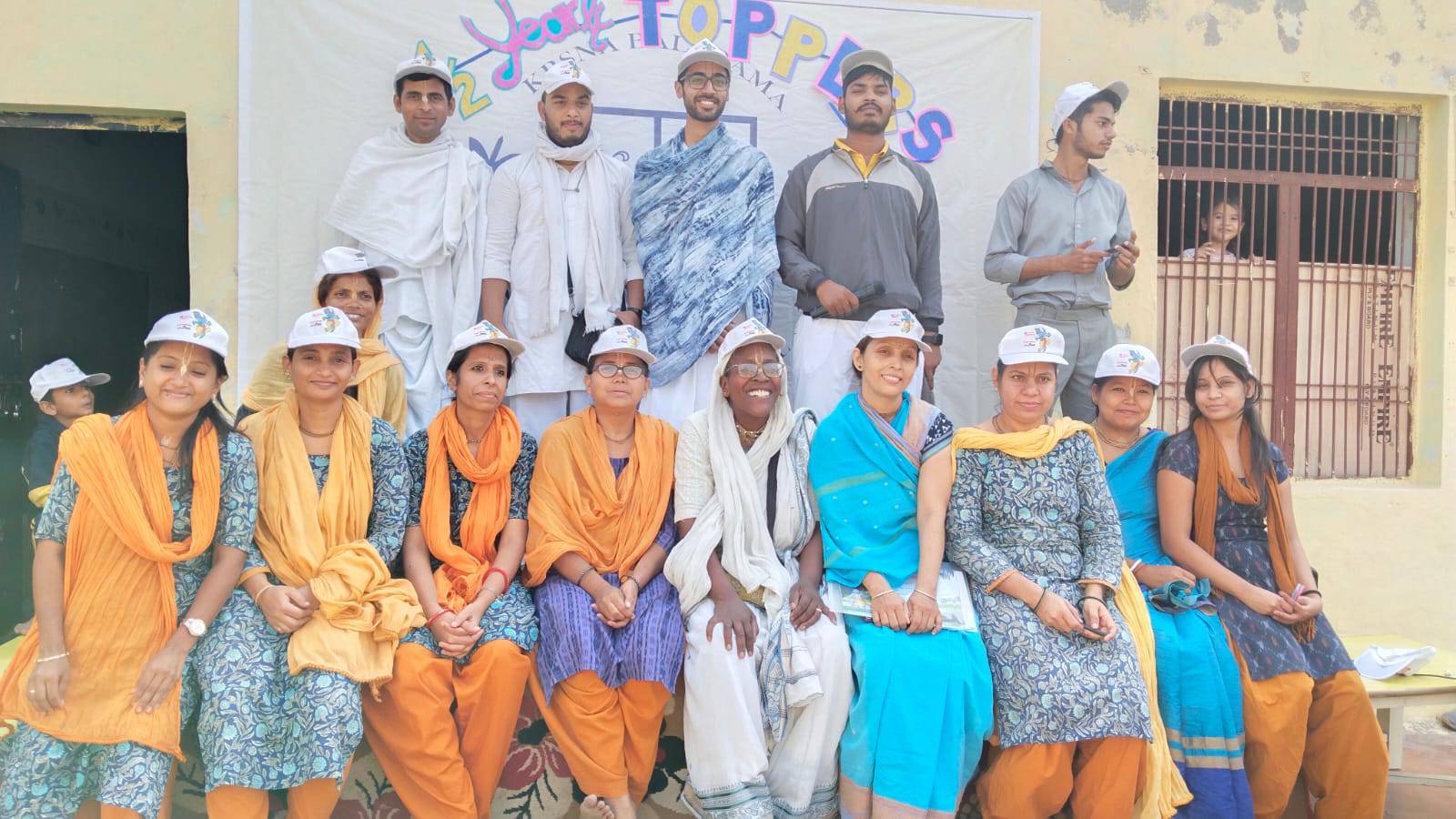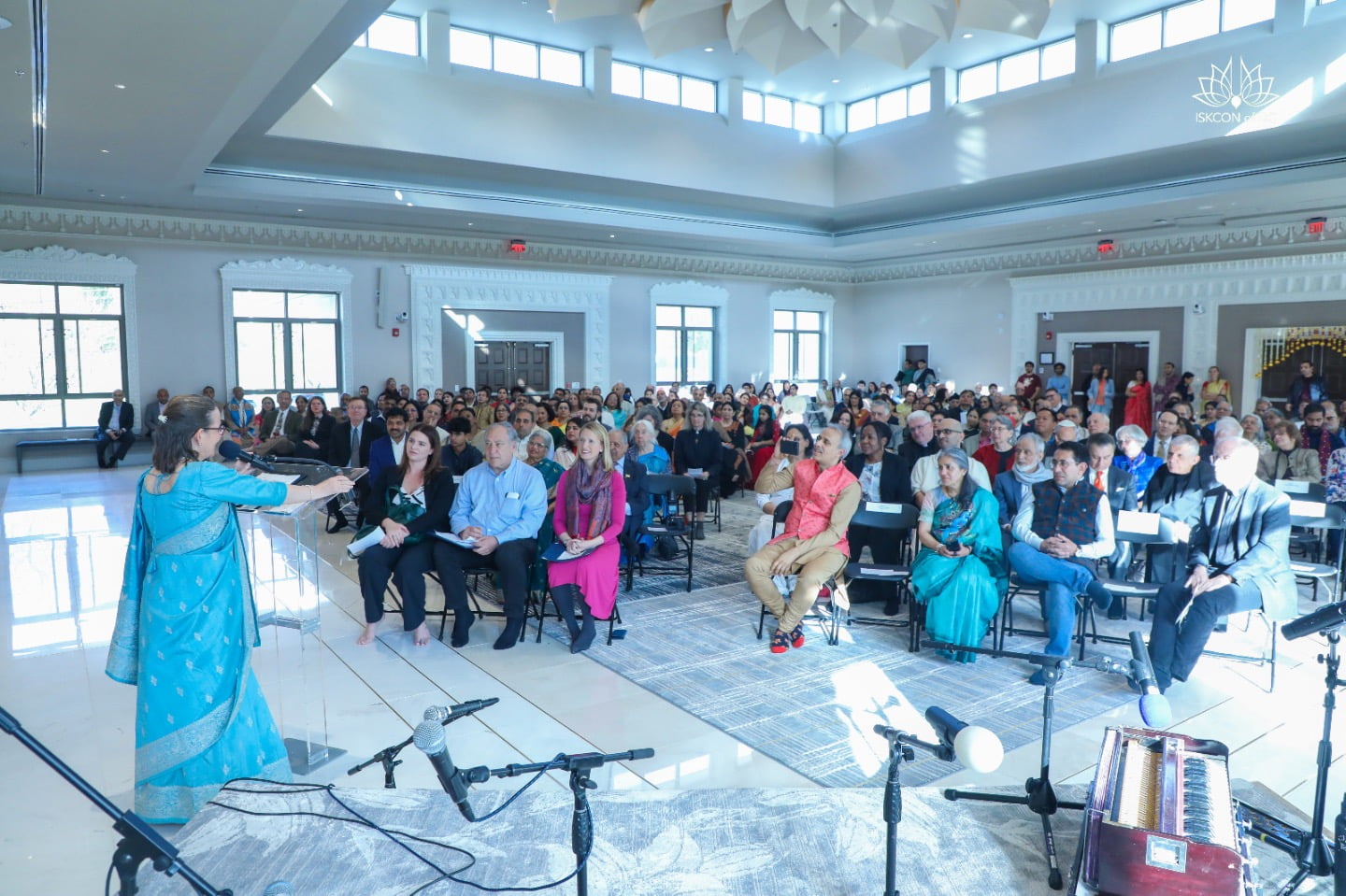ISKCON Disciple Course to be Prerequisite for Initiation from 2015
By Madhava Smullen | Apr 03, 2014

At the 2014 Annual General Meetings of ISKCON’s Governing Body Commission in Mayapur, West Bengal this February, the GBC resolved that devotees wishing to take initiation from an ISKCON guru will be required to first pass the ISKCON Disciple Course.
The resolution will not be effective until Janmastami 2015 (September 5th), so that ISKCON leaders throughout the world will have time to put the proper systems in place to make the course widely available.
The ISKCON Disciple Course grew from the ISKCON Guru Seminar, created in 2008 to help new devotees taking up the service of guru learn from those that had gone before them, and be successful and effective in preaching and caring for devotees.
“While creating that seminar, we realized that we needed the other side too,” says ISKCON Communications Director Anuttama Das, one of the course developers. “We needed to share a mature understanding of what it means to be a guru within ISKCON with those devotees that are taking up that service. But we also needed to more directly help devotees becoming disciples.”
The twenty-hour Disciple Course, offered over four days, was first made available in 2012, and has already been taught in Mayapur, India; Washington D.C., North America; Argentina, South America; Hong Kong, and Bangladesh.
A fun and interactive course, it is ISKCON’s first standard training system for new members in regards to the specific duties of initiated disciples, and deals with a series of important topics on what it means to be a disciple in ISKCON.
The course begins with the topic of guru-tattva, or what it means to be a guru. “In the course we study a lot of what Prabhupada wrote and spoke about guru,” Anuttama says. “How the guru is to be respected as God’s ambassador. And how although in the disciple’s eyes, the guru is the representative of God, the guru sees himself as the humble servant of his own spiritual master.”
The course also focuses a lot on Srila Prabhupada’s unique, preeminent (meaning surpassing all others) position as Founder Acharya of ISKCON.
“We remind people how much Prabhupada is very much an integral part of the life of every devotee in ISKCON,” says Anuttama. “We read Srila Prabhupada’s books; we see his murti; we chant his pranam prayers in kirtan; his picture is on the altar; and we hear lectures given on his books.”
The three different gurus are also discussed – the preeminent Founder Acharya Srila Prabhupada; one’s many siksa gurus such as temple presidents, bhakta leaders, or anyone who gives spiritual instruction; and for those who decide to become more serious and take vows, the diksa guru.
“All three work together, throughout our lives,” says Anuttama. “And collectively, they form and give guidance to our spiritual life.”
Another section of the course covers how to select a diksa guru. “Sometimes there may be a misunderstanding that I should pick a guru based on who’s got the most disciples, or is the best singer,” Anuttama says. “But those are not appropriate ways. Rather, we should select a guru based on who inspires us, sets a good example and is dedicated to their own spiritual master.”

ISKCON devotees from all over the world gathered to attend the disciple course in Mayapur
The course is down-to-earth and realistic. In a lesson about the importance of initiation vows and why we take them, devotees break up into groups to discuss some of the challenges they might face in mainting their vows as a future disciple.
In another lesson, they learn about how to respond if their guru has spiritual difficulties. According to Anuttama, this is not only a 21st century problem, but something that has precedent in Lord Chaitanya’s pastimes and even as far back as the Mahabharata.
“We’ve seen in the past that sometimes spiritual leaders have difficulties, and their disciples are not prepared to cope with it,” he says. “So we want to prepare all disciples in the future. We particularly emphasize that if our diksa guru has difficulty, we always have our connection with Srila Prabhupada, Lord Krishna, ISKCON, and our siksa gurus.”
Towards the end of the course, there is a lesson on relationships within ISKCON, and how initiation within the society also means ‘taking up the family business’ of spreading Krishna consciousness and helping others awaken their spiritual life.
The course is filled with interactive group work, skits, and role playing. In one skit, for example, course attendees learn about what to do if they get conflicting advice from two different authorities – such as their guru and their temple president.
Throughout the course they also learn about the duties of being a disciple, the different ways of serving the guru, and the importance of respecting all Vaishnavas.
The course took about a year to create under the auspices of the GBC Guru Services Committee, the Mayapur Institute, and ISKCON Communications, with the input of senior devotees, diksa and siksa gurus, and educators from around the world. It is based mostly upon Srila Prabhupada’s books and lectures, as well as the writings of the six Goswamis of Vrindavana.
It is offered by qualified teachers who have already taken the course themselves, and have completed the VTE Teachers Training Course at the Mayapur Institute, or equivalent training.
Over the next year-and-a-half, before ISKCON gurus implement the course as a prerequisite for initiation, the GBC Guru Services Committee will work hard to make sure that there are many trained teachers at ISKCON temples all over the world who will be qualified to teach it.
While the course lasts 20 hours and typically four days, it allows great flexibility according to the needs of each temple – for instance it can be taught every Saturday for four weeks in arrow, or on the first weekend of the month two months in a row.
Devotees who do not live close enough to a temple will be able to take the course online through the Bhaktivedanta College in Radhadesh, Belgium.
Meanwhile the course material will be translated into all major languages – so far it is already available in Russian, Italian, German, Hindi, Bengali, Spanish, Portuguese and of course English. The Guru Services Committee is also working with the website ISKCONdesiretree.net to make the course available online in various Indian languages, and several other languages are currently in the pipeline too.
Although the course will be required for most initiates from 2015, GBC members may request a one-year extension for areas within their jurisdiction under special circumstances – for example if a remote country does not have the course available in their language yet. The requirement for an infirm or terminally ill prospective disciple to take the course may also be waived by their local temple president.
Meanwhile illiterate devotees are welcome to participate in the course, and can undergo a minimal oral examination upon completion.
The ISKCON Disciple Course has already been given in many countries and has evoked positive feedback and results from both new and senior devotees.
Anuttama, who has taught the course many times, says he loves teaching it. “I see how devotees that take it really enhance their appreciation for Srila Prabhupada, and for their own future Diksa guru,” he enthuses. “They also deepen their understanding of our culture feel much more equipped to be successful as disciples.”
In the early days of ISKCON, Anuttama recalls, devotees would get initiated quickly without even being quite sure what it meant, and many left just as quickly.
“Obviously we weren’t very good at training devotees and helping them understand the seriousness of the commitment,” he says. “But now I think that courses like this give testimony to the maturity of ISKCON, and show that we’re understanding the need to train members about how to make a serious commitment to their spiritual life based on a very broad and mature understanding of Krishna consciousness.”
Spiritual life’s not just about a pep-talk,” he concludes. “It’s about a lifelong commitment, and we need to strengthen people in how to do that in a balanced and mature way.”












